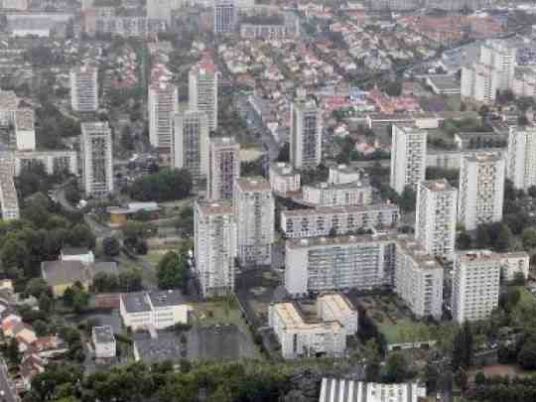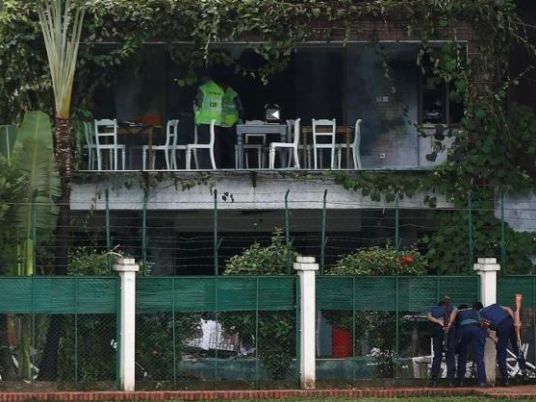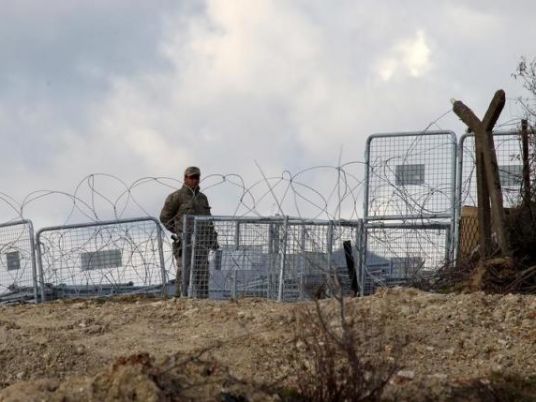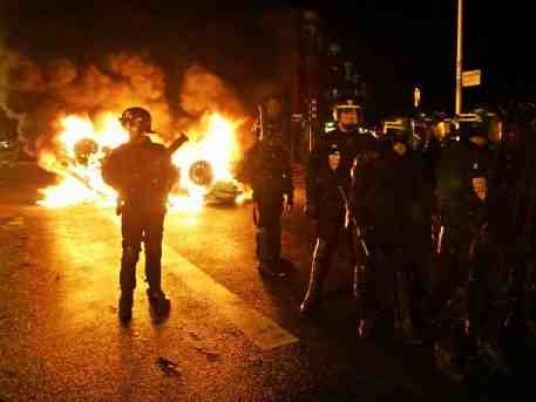
Talking to kids at his football club in a gritty high-rise suburb of Lyon, Mohamed Tria says he was "dumbfounded" by their reaction to last week's deadly Islamist attacks.
The teenaged players "didn't see it as 17 people killed but as an act of bravery by those who died with a weapon in their hand. They admire those guys," Tria, president of the local club, told AFP.
In city suburbs all over France, with their crumbling high-rise tenement blocks and sky-high unemployment, fears are mounting that a sense of desperation and isolation could breed more cases of radicalisation.
These suburbs exploded in violence in 2005 as a disaffected underclass vented its fury at the establishment, long seen as ignoring the needs of those scratching out a living on the city edge.
With their high proportion of immigrant families, they have also become a byword for the failure of integration in France, with residents feeling a powerful sense of isolation and abandonment.
And as people poured out in their millions for a historic rally under the unifying banner "Je Suis Charlie" in support of the Charlie Hebdo satirical weekly, those in the suburbs broadly stayed at home.
"Not surprising," says Tria. It seems not everyone shares France's unprecedented sense of unity.
Some 200 "incidents" have been recorded in schools, mainly in the suburbs, ranging from not observing the minute's silence for the victims to "condoning terrorism".
– 'We've got nothing here' –
"We're so close to Paris and so far away from everything," said Issa, from Clichy-sous-Bois, a suburb just 25 kilometres (16 miles) from the Eiffel Tower.
Zouzou, a mother of five from Clichy-sous-Bois, where the 2005 riots began, complained: "We've got nothing here. No transport links, no shops, no theatre, no cinema."
"The town's politicians have failed completely because people feel abandoned. My children don't vote because they see that politicians don't care about them."
In Grigny, the southern Paris suburb home of gunman Amedy Coulibaly, who killed four Jews and a policewoman, the fear is that the area will suffer even more from stigmatisation.
A downtrodden suburb of 11,000 people, ringed with high-rise, low-cost housing projects with the A6 motorway thundering by, two in five inhabitants live below the poverty line and average annual income is 10,000 euros ($11,500), a paltry sum by Western standards.
But amid the poverty, there is pride and a fierce determination to tell the world that, in the words of one inhabitant who declined to be named, "Amedy is not Grigny."
"He wasn't brought up like that," said another Grigny inhabitant, a childhood friend of Coulibaly, adding: "He learned all that in prison."
The young woman told AFP that she had last seen Coulibaly "a few weeks before the attacks."
"I wanted to say hello. He replied: 'I don't shake hands with women anymore.' That's when I understood (that he had been radicalised)."
An association bringing together 120 mayors from disadvantaged outskirts warned that their areas are "on a knife-edge … the symbol of our divisions, our powerlessness, contradictions and weaknesses."
– 'We don't go to Grigny' –
Like Coulibaly, the Kouachi brothers — who stormed the offices of Charlie Hebdo and killed 12 in "revenge" for the satirical magazine's portrayal of the prophet Mohamed — are thought to have been radicalised in prison.
The brothers grew up in Correze in central France, and many experts warn against drawing an automatic link between city suburbs and radicalisation.
"You have to be very careful when drawing conclusions based on location," said Renaud Epstein, a sociologist at the university of Nantes in western France.
"These areas are a microcosm of a much wider problem … including ethnic discrimination," he added.
After the 2005 riots, successive French governments have poured in billions of euros in urban regeneration projects and aim to create 300,000 new jobs in depressed suburbs over 10 years.
"But pouring in tonnes of concrete is not enough," stresses Mohamed Tria from the Lyon football club. "You need the human touch."
"Kouachi and Coulibaly were a wake-up call but these are the children of the republic that we have created … French-style integration has not worked."
In Grigny, the "years and years" of stigmatisation "can't just disappear like that," said one long-term resident.
One mother of four said a child of a friend of hers was suffering from awful toothache. She rang the dentist who replied with a chuckle: "Madame, we don't go to Grigny."
And while several families have gone to local authorities to apply for alternative housing in a different area, many "Grignois" still take pride in their home.
"Leave? Out of the question. Some people do it and then they end up regretting it. You can live somewhere else, but you'll have the same problems," said one young resident.
An older friend agreed with a note of pride in her voice: "After 43 years here, I feel at home."



